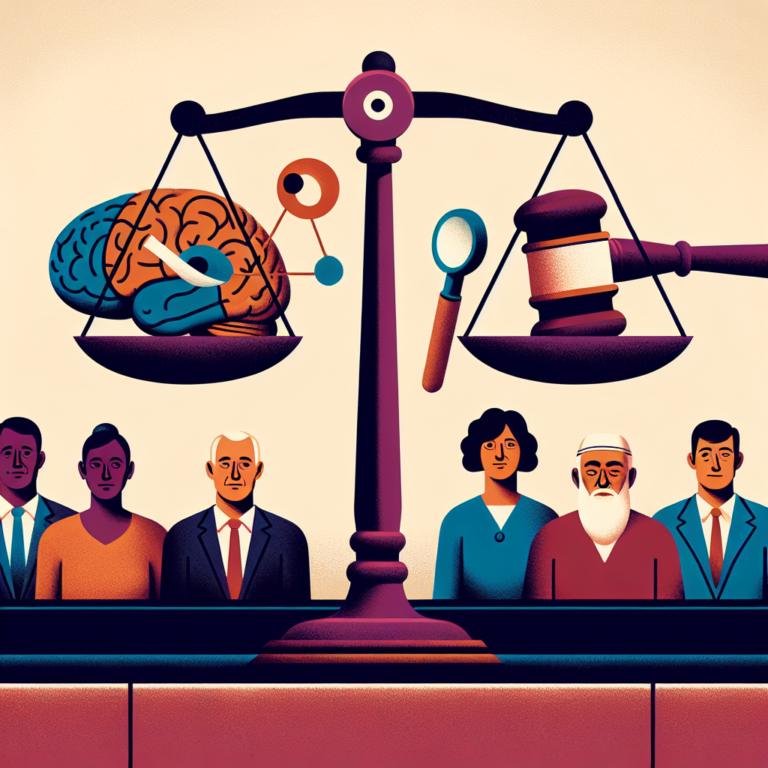
Introduction
Imagine a world where justice and morality stand at a crossroads, each demanding to be the guiding principle of our society’s reactions to crime. The death penalty dilemma presents such a theater of conflict, drawing attention from policymakers, ethicists, and citizens alike. In a time when our society grapples with issues of crime, punishment, and morality, the death penalty remains one of the most divisive subjects imaginable. As we embark on a voyage to explore this pressing topic, we will evaluate the ethical, legal, and social perspectives that frame the ongoing debate around the death penalty.
The Ethical Perspective
Morality vs. Justice
At the heart of the death penalty dilemma is a fundamental ethical question: Is it ever morally acceptable to take a life, even in the name of justice? Proponents argue that capital punishment serves as a deterrent to heinous crimes and provides closure to victims’ families. On the other hand, opponents often invoke the sanctity of life, arguing that it is morally indefensible for the state to enact vengeance.
Case Study: The "Innocence Project"
The Innocence Project has exonerated over 375 wrongfully convicted individuals in the United States, with 20 of these individuals serving time on death row. This statistic raises compelling ethical questions about the reliability of the justice system and whether capital punishment can ever be justified when an innocent person could potentially be executed.
Moral Implications of Execution
The ethical debate extends further into the implications of execution methods, encompassing issues surrounding human dignity, suffering, and psychological impacts on executioners. Discussions around lethal injection, firing squads, and gas chambers illustrate how varied methods might impact the ethical considerations surrounding capital punishment.
The Legal Perspective
Constitutional Framework
The death penalty must also be evaluated through a legal prism. The U.S. Constitution provides a framework for how the state can impose the death penalty, but interpretations of this framework vary dramatically across jurisdictions.
Case Study: Furman v. Georgia (1972)
In this landmark case, the Supreme Court ruled that the death penalty, as it was applied at the time, violated the Eighth Amendment’s prohibition against cruel and unusual punishment due to its arbitrary and capricious application. This ruling instigated a temporary moratorium on capital punishment and highlighted the legal inconsistencies and biases in its administration.
International Laws and Norms
While most Western democracies have abolished the death penalty, many countries still retain it. Legal norms regarding capital punishment vary dramatically, and international human rights laws increasingly disfavor the practice. The U.N. General Assembly’s repeated resolutions calling for a global moratorium on executions illustrate growing international discontent with the death penalty.
The Social Perspective
Public Opinion Dynamics
Public opinion about the death penalty is complex and often polarized. Factors such as culture, religion, and media representation significantly shape societal attitudes. In the U.S., public support has waned in recent years, coinciding with widespread revelations about wrongful convictions and racial disparities in capital cases.
Statistics Table: U.S. Public Opinion on the Death Penalty (Year – % Support)
| Year | % Support |
|---|---|
| 1994 | 80% |
| 2000 | 75% |
| 2010 | 64% |
| 2020 | 55% |
| 2023 | 50% |
Racial and Economic Disparities
Disparities in the application of the death penalty raise significant social concerns. Studies show that the race of both the victim and the perpetrator plays a crucial role in determining who receives the death penalty. A white victim’s murder is significantly more likely to result in a death sentence than that of a person of color.
Implications of the Death Penalty
The Economic Argument
Beyond ethical, legal, and social considerations lies a practical economic analysis of the death penalty. Implementing capital punishment is often more expensive than life imprisonment due to the extensive legal processes involved, including lengthy trials, appeals, and incarceration.
Case Study: California’s "Death Penalty Cost" Study
In California, it was reported that the death penalty system can cost the state $137 million annually. This figure highlights a critical question in evaluating the death penalty dilemma: can we afford such a system financially while weighing its moral worth?
Conclusion
The multifaceted nature of the death penalty dilemma—evaluating ethical, legal, and social perspectives—reveals a landscape richly populated with complexities. As we continue to engage in this debate, it is vital to ask ourselves: What kind of society do we want to cultivate? A society that seeks retribution or one that pursues rehabilitation and restorative justice?
Regardless of personal beliefs, our understanding of the death penalty must be extensive, informed by data, experience, and empathy. As citizens, it is our responsibility to engage in conversations that lead to informed policies and justice that reflects our core values and ideals.
FAQs
1. Is the death penalty a deterrent to crime?
Studies show mixed results, with some indicating a possible deterrent effect, while many experts contend that the death penalty does not significantly decrease violent crime rates.
2. How does the death penalty disproportionately affect marginalized groups?
Research has consistently shown that minority groups, particularly African Americans, are more likely to be sentenced to death, particularly in cases involving white victims.
3. What are the costs associated with the death penalty?
Various studies indicate that the financial burden of administering the death penalty, including trials and lengthy appeals, often exceeds the costs of life imprisonment without parole.
4. Are wrongful convictions a concern?
Yes, wrongful convictions are a significant concern surrounding the death penalty, with numerous cases resulting in exoneration of individuals who had been wrongly sentenced to death.
5. What alternatives exist to the death penalty?
Alternatives such as life imprisonment without parole are often proposed as more humane and cost-effective solutions to addressing severe crimes without resorting to capital punishment.
Engage, educate, and explore the complexities of capital punishment—the death penalty dilemma presents an essential conversation for all who wish to understand the moral, legal, and societal implications of justice in our world today.















